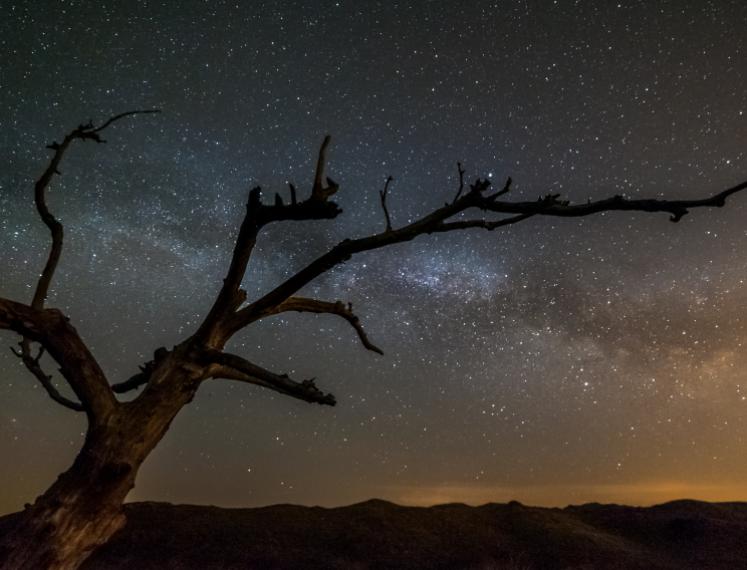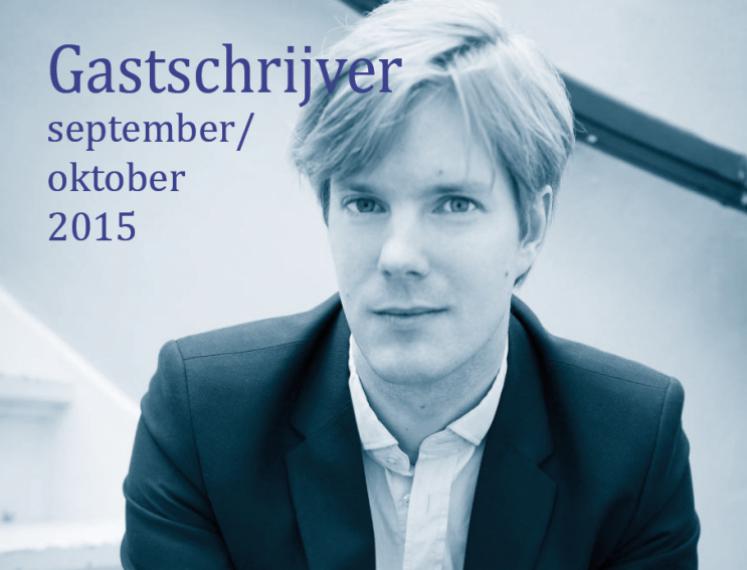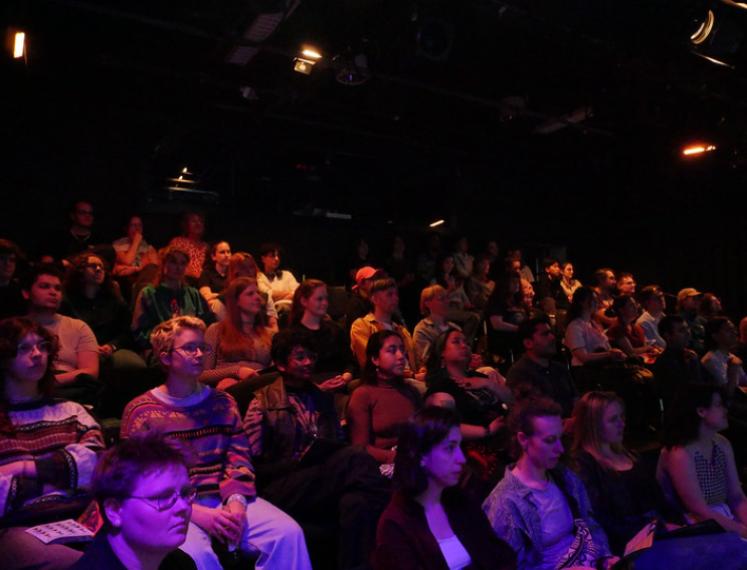
Queer Science Festival Review
How did doctors treat homosexuality in the 19th century? And how does the use of pronouns influence job applications? These are just a few topics within the field of LGBTQIA+ related research. During the second edition of the Queer Science Festival, you were invited to find out what queer science entails, and how it is being conducted in Groningen.
On May 21st, the Queer Science Festival transformed Usva into a space for sharing knowledge, community building, and activism. The event was completely sold-out, and students, professors, and locals gathered to engage in discussions, lectures, embroidery, and much more. For one night, Usva turned into an inspiring, communal safe space for the queer community of Groningen and its allies.
Lectures
Queer Science Festival brought together a group of researchers in the field of Queer research to share their knowledge in the form of accessible and engaging mini-lectures on their areas of expertise. These lectures offered a broad range of topics from the pink-washing techniques used by the IDF as a form of propaganda, to biological research arguing that “everyone is non-binary”, showcasing the many facets of queer scholarship. The attendees participated in lively discussions and Q&A sessions with the speakers, leading to interesting and fruitful observations. These mini-lectures showcased the multitude of perspectives and approaches regarding Queer Science, and made academia accessible for everyone in attendance. The lectures were a great success, sometimes they were so popular that the interested attendees exceeded the available seats. However, standing in a corner of the room is no hard task when the lectures are this inspiring!
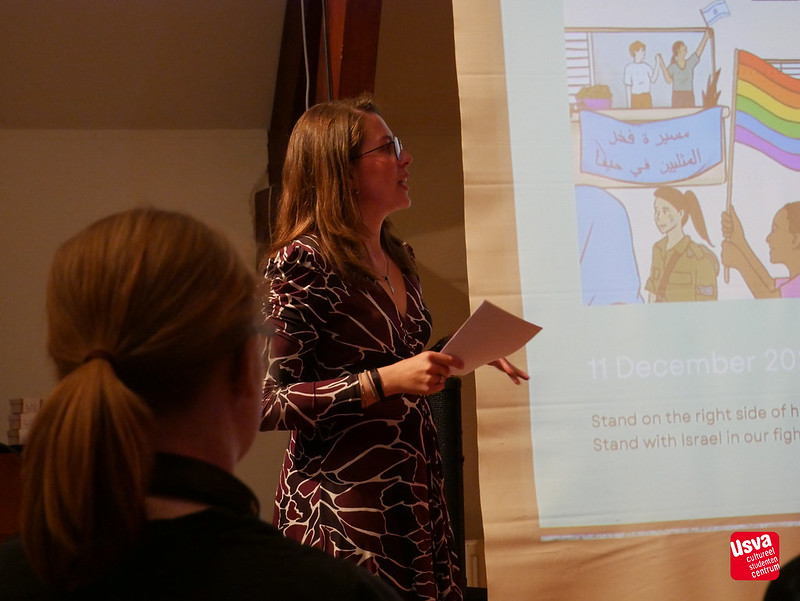
Living Library
The sharing of knowledge and experience didn’t end at the lectures. In the living library researchers and experts in the field of Queer Science could be “borrowed” like books in a library. This gave participants the opportunity to ask them any questions they wanted relating to their area of expertise or lived experiences, without the usual constraints of a university classroom. These library conversations were educational, but also gave festival-goers as well as speakers the opportunity to reach out to their community and build connections.
Our Exquisite Corpse - The Pink Cube
The interactive artwork “Our exquisite corpse”, in collaboration with The Pink Cube, bridged the gap between academia and activism. Attendees were invited to contribute to a quilt, the collective time spent on this artwork represents the waiting time for gender affirming care at the UMC Groningen: 1.314.900 minutes. The result was both a beautiful representation of communal action, as well as a jarring reflection of the neglect of trans persons within the Dutch healthcare system.
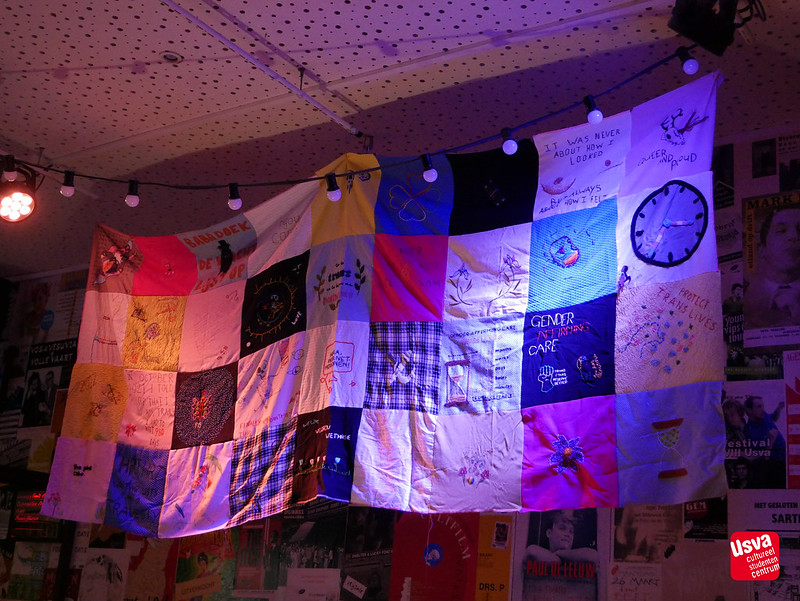
The Bar
With their minds still reeling from the groundbreaking research and lectures, attendees were welcomed at the bar for an opportunity to wind down, grab a drink with friends or strangers, and watch the short-film Ponyboi which was playing on repeat all night. Ponyboi tells the
thought-provoking story of an intersex person on a journey of self-discovery. The bar was lively all night long, attendees could even get a temporary tattoo. You could choose your tattoo yourself: quotes from Sappho, the Queer Science Festival logo, or a pride flag, the possibilities were endless.
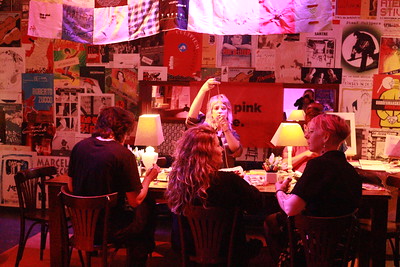
Walter's Bookshop
For everyone who felt inspired to learn even more after the festival, Walter’s bookshop was ready with a stall filled with books on a wide range of queer and LGBT+ topics. This highlights Queer Science Festival’s effort for fostering knowledge and education beyond the one-night-only event. The book stand encouraged attendees to keep the conversation going beyond the walls of USVA
Thanks to the art, books, conversations, and fascinating lectures the second annual edition of the Queer Science Festival was an immense success, and left attendees inspired and motivated. After this year’s edition we are even more excited to do it all again next year!
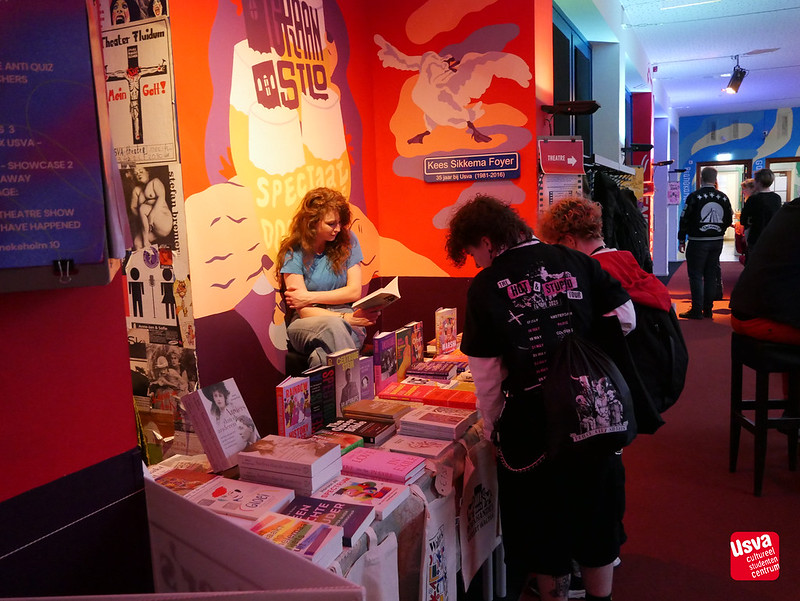
This review is written by Madeline Dot and Hannah Dik, Research Master students in Arts, Media and Literary Studies and moderators at the Queer Science Festival.
